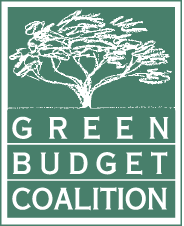The PMRA often lacks data on environmental concentrations and use patterns (e.g., information on the timing, location, and quantity of pesticide applications) for the pesticides it is responsible for evaluating and regulating. This is an unacceptable gap. Water and use monitoring should be expanded and extended beyond the limited initiatives first announced as pilots in 2021 and funded for two more years in Budget 2024. The collection of these data over a longer term is also required to measure Canada’s progress towards meeting Target 7 of the Global Biodiversity Framework (reducing pesticide risks by 50% by 2030).
In June 2024, the government published draft regulatory changes to strengthen the consideration of species at risk in pesticide risk assessments. The Green Budget Coalition recommends that the Canadian Wildlife Service be funded to lead this work, and to assess and track the overall risks of pesticides to biodiversity.
Recommended Investment:
$100 million over five years
- $5 million top-up in 2025, then $40 million over five years beginning in 2026 (and renewed in 2031) to expand and extend the new pesticide water monitoring program. [PMRA, in collaboration with ECCC]
- $25 million over five years to launch a system for collecting and publishing pesticide sales and use data at the local/regional scale, plus $5 million in 2025 to design and develop a publicly- accessible portal for communicating real-time pesticide use data. [PMRA, in collaboration with AAFC]
- $25 million over five years to support the consideration of species at risk in pesticide assessments and to assess and monitor the overall risks to biodiversity from pesticide use in Canada. [ECCC]
Cost recovery. The Green Budget Coalition also supports the PMRA’s proposed increase in fees for pest control products and recommends: increasing the proportion of costs to be recovered; and expanding cost recovery to include a wider range of programs such as water monitoring activities and use data collection.
See also Sustainable Agriculture Strategy: Cultivating success, with related recommendations for reducing risks from pesticides, earlier in this document.

